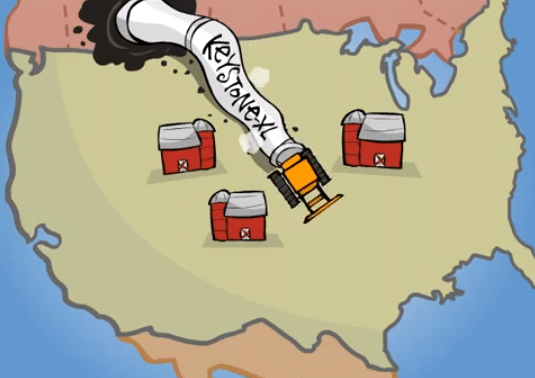DeSmogBlog has found that Environmental Resources Management, the consulting firm behind the Keystone XL Pipeline environmental impact assessment, has been at the center of controversial pipeline projects in the past.
Activists working against the 2002 planned construction of British Petroleum’s Baku-Tbilisi-Ceyhan pipeline in Turkey, singled out Environmental Resources Management (ERM) for what they saw as ERM “grooming” the BP pipeline for construction. Like the Keystone XL pipeline assessment, ERM‘s assessment of the Turkish pipeline was seen as flawed and drafted in a way that gave all but the green light for the pipeline to be constructed.
Environmental and human rights group London Rising Tide went as far as occupying ERM‘s offices in London, handing out pamphlets to employees stating that:
Your employer [ERM] plays a crucial role if low-key, in grooming BP‘s Baku Ceyhan pipeline for construction.
In recent days, similar concerns have been raised after the website InsideClimate News revealed that:
The State Department’s recent conclusion that the Keystone XL pipeline “is unlikely to have a substantial impact” on the rate of Canada’s oil sands development was based on analysis provided by two consulting firms with ties to oil and pipeline companies that could benefit from the proposed project.
Researcher Brad Johnson writing on Grist then made the link to Environmental Resources Management, finding that,
The “sustainability consultancy” Environmental Resources Management (ERM) was paid an undisclosed amount under contract to TransCanada to write the statement, which is now an official government document.
The construction and operation of the Baku-Ceyhan pipeline has impacted the livelihoods of local fishermen, as seen in this video:
Subscribe to our newsletter
Stay up to date with DeSmog news and alerts







